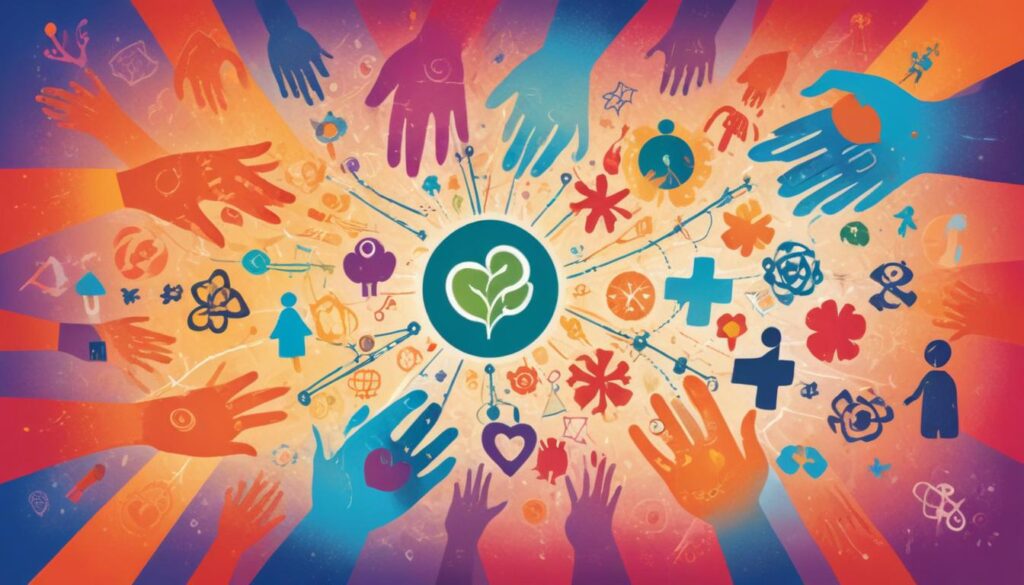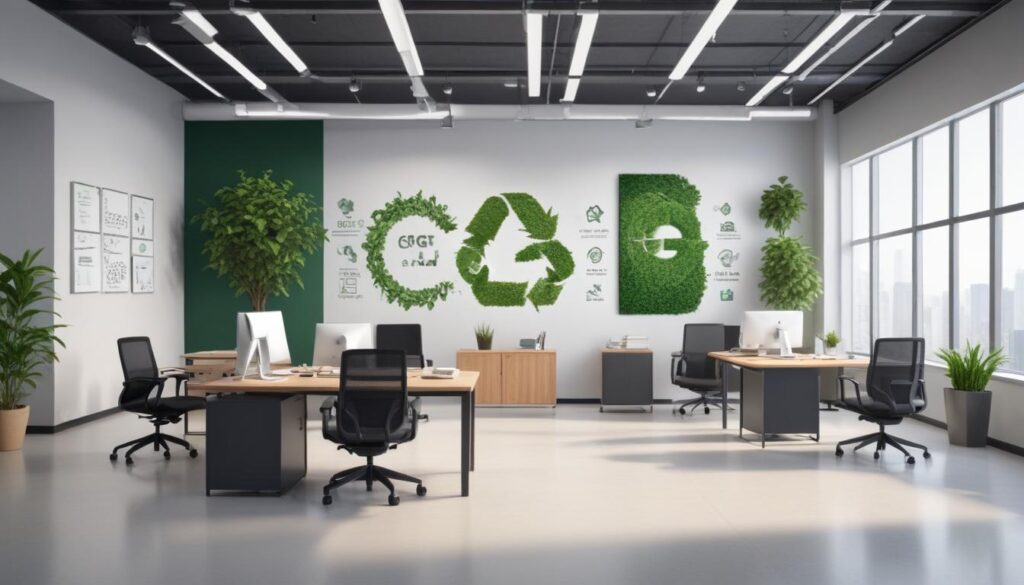Plastic pollution is a critical environmental issue, with approximately 8 million tons of plastic entering the oceans each year, harming wildlife and ecosystems, and necessitating global efforts to reduce usage and promote sustainable alternatives.
On this World Environment Day, let’s dive into the critical issue of plastic pollution that affects our oceans and health. Curious how we can collectively tackle this challenge?
Introduction to World Environment Day
World Environment Day is celebrated globally on June 5th every year, and it serves as a reminder of the urgent need to protect our planet. This day encourages individuals, organizations, and governments to take actionable steps towards environmental conservation. The continual rise in plastic pollution highlights the necessity of urgent reforms and innovations aimed at reducing our reliance on single-use plastics.
Plastic waste poses a serious threat to wildlife and ecosystems. From marine animals ingesting plastic debris to birds becoming entangled, the repercussions are profound. In recent years, various countries have begun to implement strict regulations against plastic use, promoting sustainable alternatives. These efforts coincide with broader global initiatives aimed at fostering a more sustainable future.
Organizations around the world leverage this day for awareness campaigns, inviting communities to engage in activities such as beach clean-ups and educational workshops. These initiatives empower individuals and communities to take ownership of local environmental issues. By involving everyone, World Environment Day transforms into a collective movement aimed at minimizing plastic footprint and advancing our understanding of eco-friendly practices.
Understanding Plastic Pollution
Plastic pollution is one of the most pressing environmental issues of our time. It refers to the accumulation of plastic products in the environment, significantly impacting wildlife, ecosystems, and human health. Millions of tons of plastic waste enter our oceans each year, where they break down into microplastics that can be ingested by marine organisms.
The primary sources of plastic pollution include single-use items such as bags, bottles, and packaging materials. These items are often discarded irresponsibly, contributing to landfill overflow and ocean debris. Countries around the world are beginning to recognize the scale of this issue and implement strategies aimed at reducing plastic waste.
Moreover, the effects of plastic pollution extend beyond marine life. Studies have shown that consuming seafood contaminated with microplastics can pose significant risks to human health. This growing concern has prompted scientists and activists alike to advocate for sustainable practices, such as recycling, reducing plastic consumption, and promoting the use of biodegradable alternatives.
Understanding plastic pollution is critical for developing effective solutions. By raising awareness and encouraging responsible consumption habits, we can collectively work towards a future that minimizes plastic waste.
Global Efforts for a UN Treaty
In recent years, there has been a significant push for global efforts to address plastic pollution through the establishment of a UN treaty. This initiative aims to create a legally binding agreement among nations to combat plastic waste on a global scale. The need for such a treaty has become more urgent as experts warn about the escalating crisis affecting our oceans and ecosystems.
The proposed treaty focuses on several key areas, including the reduction of plastic production, enhancement of recycling technologies, and the promotion of sustainable alternatives. By fostering international cooperation, this treaty seeks to ensure that countries share best practices and resources to effectively combat plastic pollution.
Moreover, developing countries are particularly vulnerable to the impacts of plastic waste. The treaty emphasizes the importance of providing support and resources to these nations, enabling them to manage their waste effectively. Collaborative programs and funding can help implement better waste management systems and raise public awareness.
Engagement from various stakeholders, including governments, environmental organizations, and the private sector, is essential for the treaty’s success. Mobilizing collective action is crucial to initiate real change, leading to a healthier planet and sustainable future for generations to come.
Korea’s Leadership in Sustainability
Korea has emerged as a global leader in sustainability, implementing innovative policies to address environmental challenges. The nation’s commitment is evident in its diverse initiatives aimed at reducing carbon emissions and promoting renewable energy sources. Korea’s Green New Deal is a pivotal strategy designed to boost the economy while achieving sustainability goals.
A significant aspect of this effort is the promotion of green technology. Korea invests heavily in research and development, fostering advancements in areas such as electric vehicles and energy-efficient technologies. By prioritizing clean energy solutions, the country aims to transition away from fossil fuels and embrace a more sustainable future.
Moreover, Korea actively engages in global partnerships, collaborating with other nations to share knowledge and best practices in sustainability. These relationships are crucial for tackling issues like plastic pollution and climate change collectively. International summits and agreements showcase Korea’s role as a proactive participant in global environmental governance.
Public awareness campaigns further amplify Korea’s sustainability efforts, encouraging citizens to adopt eco-friendly practices. This cultural shift toward greater environmental responsibility is fostering a society that values sustainability at its core, setting an example for others to follow.
The Impact of Plastic on Marine Life
The impact of plastic on marine life is alarming and increasingly recognized as a critical environmental issue. Every year, millions of tons of plastic waste end up in our oceans, causing detrimental effects on marine organisms. Large pieces of plastic, such as bags and bottles, can entangle marine animals, leading to injuries or mortality.
Moreover, smaller fragments, known as microplastics, pose a significant threat as they are ingested by fish and other marine creatures. This ingestion can disrupt their digestive systems and expose them to harmful chemicals. As these toxins accumulate within the food chain, they ultimately reach humans, raising concerns about food safety.
The degradation of marine habitats, including coral reefs and coastal ecosystems, is also exacerbated by plastic pollution. Coastal areas littered with plastic can hinder the growth of vital organisms, affecting biodiversity. The presence of plastic debris in these environments compromises the resilience of marine ecosystems against climate change.
Efforts to address this crisis include initiatives for reducing plastic usage, increasing recycling rates, and enforcing stricter regulations on plastic production. Active participation from governments, industries, and consumers is essential to protect marine life from the devastating impacts of plastic pollution.
Corporate Actions Against Plastic Pollution
Corporations are increasingly recognizing their role in combating plastic pollution through innovative actions and sustainability initiatives. Many companies are adopting policies aimed at reducing plastic usage in their operations and supply chains. For instance, businesses are switching to sustainable packaging alternatives, such as biodegradable materials, to minimize their environmental footprint.
Along with switching to eco-friendly materials, companies are implementing recycling programs to manage plastic waste more efficiently. These initiatives not only help in reducing landfill waste but also promote a circular economy by encouraging the reuse of materials. This proactive approach demonstrates a commitment to environmental responsibility.
In addition, corporations are collaborating with non-profit organizations and government entities to develop comprehensive strategies for tackling plastic pollution on a global scale. Such partnerships can leverage resources and expertise, driving more significant change. Furthermore, many companies participate in awareness campaigns, engaging consumers to contribute to plastic reduction efforts through responsible consumption habits.
Investments in technology and research are also crucial as companies explore ways to create sustainable products that do not rely on plastic. By integrating sustainability into their business models, corporations can lead the way in making a positive impact on the planet while also appealing to environmentally conscious consumers.
Innovations in Packaging Solutions
Innovations in packaging solutions are pivotal in the fight against plastic pollution. Companies are increasingly developing sustainable packaging alternatives that significantly reduce environmental impact. One such innovation is the use of biodegradable materials, which decompose naturally, thereby minimizing landfill waste and reducing ocean pollution.
Another exciting advancement involves the creation of edible packaging. Made from natural ingredients, this innovative solution can reduce plastic waste while providing added value to consumers. For example, packaging made from seaweed or starch can safely be consumed along with the product, offering both convenience and sustainability.
Many companies are also embracing recyclable packaging designed for ease of recycling, ensuring that materials are efficiently collected and processed. This not only promotes a circular economy but also encourages consumers to engage in responsible disposal practices. By including clear recycling symbols and instructions on packaging, companies help consumers make informed decisions.
Additionally, technology plays a role in enhancing packaging sustainability. Smart packaging solutions equipped with sensors can extend product shelf life by monitoring freshness. These technologies reduce food waste and increase efficiency across the supply chain. Overall, innovations in sustainable packaging are transforming the industry, showcasing how creativity and responsibility can coexist to protect the environment.
Moving Towards a Circular Economy
The concept of a circular economy is gaining traction as a viable solution to combat waste and enhance sustainability. Unlike the traditional linear economy that follows a take-make-dispose model, a circular economy seeks to keep resources in use for as long as possible. This approach minimizes waste, encourages resource efficiency, and promotes the continual use of materials.
In a circular economy, products are designed with longevity in mind, allowing for easy repair and refurbishment. This reduces the need for new raw materials and helps to conserve vital resources. Additionally, companies are adopting take-back programs that encourage consumers to return products at the end of their lifecycle. This promotes recycling and ensures that materials are repurposed, rather than ending up in landfills.
Collaboration across industries is crucial in transitioning towards a circular economy. By sharing best practices and developing innovative solutions, businesses can create synergies that benefit all parties involved. Governments also play a key role by implementing policies that incentivize circular practices and penalize wasteful behaviors.
Consumer awareness and engagement are essential in driving this change. Educating the public on the benefits of a circular economy can lead to more informed purchasing decisions, contributing to a sustainable future.
Statistics on Plastic Waste
Statistics on plastic waste reveal the staggering impact of this issue on our environment. Each year, approximately 300 million tons of plastic are produced globally, with a significant portion ending up in oceans and landfills. It is estimated that around 8 million tons of plastic enter the oceans annually, contributing to the growing crisis of marine pollution.
In addition to ocean pollution, plastic waste has a profound effect on wildlife. Studies show that over 700 species are affected by marine debris, including entanglement and ingestion of plastic materials. This poses a serious threat to biodiversity and marine ecosystems.
The lifespan of plastic products ranges from hundreds to thousands of years, making their impact long-lasting. Moreover, only about 9% of plastic waste is recycled, while the majority (around 79%) accumulates in landfills or natural environments. The low recycling rates highlight the urgent need for improvements in waste management systems.
Raising awareness about plastic waste statistics can mobilize action at individual and collective levels. Efforts to reduce plastic consumption, promote recycling, and support innovative solutions are crucial in addressing this global challenge. By understanding the scale of the problem, communities can better engage in practices that lead to meaningful change.
Future Goals for a Plastic-Free World
Future goals for a plastic-free world emphasize the urgent need to reduce plastic pollution and transition towards sustainable alternatives. One of the primary objectives is to eliminate single-use plastics by implementing global bans and regulations. By encouraging consumers and businesses to shift to eco-friendly options, the reliance on plastic can be significantly decreased.
Additionally, enhancing recycling systems is crucial to achieving a plastic-free future. This involves improving collection methods, expanding recycling facilities, and increasing public awareness regarding the importance of proper waste disposal. Investing in advanced recycling technologies can lead to higher recovery rates and more efficient processing of plastic waste.
Education and community engagement play vital roles in promoting sustainable practices. Initiatives aimed at raising awareness about the impact of plastic pollution can motivate individuals to adopt favorable habits, such as using reusable bags and containers. Schools and organizations can be pivotal in fostering a culture of environmental responsibility.
Moreover, collaboration between governments, businesses, and non-governmental organizations is essential. Working together allows stakeholders to share best practices and develop comprehensive strategies for reducing plastic consumption. By setting clear targets and monitoring progress, the global community can strive towards a cleaner, more sustainable future.
Conclusion and Call to Action
As we confront the urgent issue of plastic pollution, it is evident that our collective efforts are essential in driving change. The fight against plastic pollution requires a multi-faceted approach, wherein governments, businesses, and individuals unite to create impactful solutions. Recognizing the scale of the problem is the first step toward initiating meaningful change.
Implementing policies that ban single-use plastics and promoting alternatives must be a priority for governments worldwide. Likewise, businesses must strive to innovate sustainable practices, finding ways to reduce plastic in their operations and engage consumers in responsible choices. Every small action can aggregate into significant impact.
Individuals can contribute by reducing their plastic consumption, using reusable products, and participating in community cleanup efforts. Advocacy and awareness play vital roles as we educate others about the importance of minimizing plastic use. By empowering one another to make informed choices, we can foster a culture of sustainability within our communities.
In conclusion, the movement towards a cleaner, plastic-free world hinges on our collaborative actions. It is essential to remain vigilant and compassionate in our efforts, ensuring a healthier planet for future generations. Let’s commit to taking action today, driving forward the change our environment so desperately needs.
In Summary: Striving for a Plastic-Free Future
Reducing plastic pollution is crucial for the health of our planet. By taking small, meaningful steps—like using reusable bags and supporting businesses that prioritize sustainability—we can make a big difference.
It is important for everyone to get involved. Governments need to create laws that limit plastic use, while companies should innovate to use less plastic in their products. As individuals, our choices matter too; every plastic item we refuse makes an impact.
Together, we can promote a cleaner environment and protect our oceans and wildlife from plastic waste. The future is in our hands, and by working collectively, we can create a plastic-free world for generations to come.
Common Questions About Plastic Pollution
What is plastic pollution?
Plastic pollution refers to the accumulation of plastic products in the environment, leading to harmful effects on wildlife, ecosystems, and human health.
How much plastic waste enters the oceans annually?
Approximately 8 million tons of plastic waste enter the oceans each year, contributing significantly to marine pollution.
What are some ways to reduce plastic usage?
You can reduce plastic usage by using reusable bags and containers, avoiding single-use plastics, and choosing products with minimal packaging.
Why is recycling important for plastic waste management?
Recycling helps divert plastic from landfills and oceans, reduces the need for new plastic production, and promotes a circular economy.
How can businesses contribute to reducing plastic pollution?
Businesses can switch to sustainable packaging, implement recycling programs, and educate consumers about responsible disposal practices.
What can individuals do to raise awareness about plastic pollution?
Individuals can participate in clean-up events, share information on social media, and advocate for policies that address plastic pollution.


